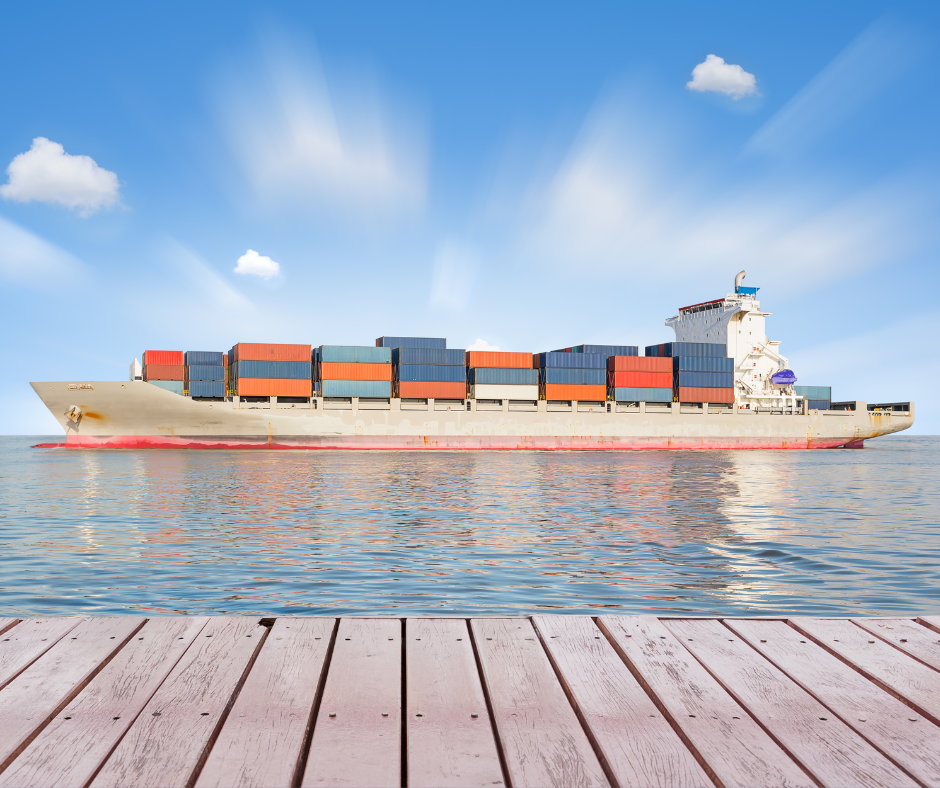Right now, supply chain struggles are big in the news. This incredibly complex, constantly moving industry has many intricate parts. From raw material suppliers to delivery drivers, each link in the supply chain must be balanced and communicative if the chain is to operate successfully.
Sustainability is one core component of an effective supply chain. Fortunately, modern tools, devices, and software, such as the Internet of Things (IoT) and blockchain, are streamlining how we balance these systems. With highly transparent and secure networks, we stand to improve the overall sustainability of supply chains for cleaner and more lucrative results.
The IoT and blockchain support sustainable supply chains in a variety of ways. By exploring these sustainable functions and how you might integrate them into your business processes, you can build the supply chain stability you’re looking for in an uncertain economy.
IoT provides data transparency that supports decision-making
The Internet of Things is the term given to devices that collect data and then communicate that data over the internet. IoT devices range from industrial sensors to wearable devices, all with various implications when it comes to the functionality of a supply chain. These implications are far-reaching across transportation and supply chains and would not be possible without the world of big data that the IoT taps into and makes useful.
IoT is instrumental, for instance, in developing eco-friendly, efficient fulfillment center strategies. That’s because these processes rely on the kind of big data transparency that only the IoT can offer on a scale that reverberates through the entire supply chain. The IoT enables accurate tracking methods, consistent protocols, and data analysis that all stand to change supply chain decision-making for the better.
Many companies have already experienced the sustainable benefits that come through industrial IoT. Shipping line giant Maersk, for example, built an infrastructure of sensors and mobile and satellite communication technology with the help of Ericsson to monitor its fleet of 300,000 refrigerated produce containers. The increase in transparency of container conditions led to a decrease in necessary inspections. This, Maersk says, means reduced resource use and even CO2 emissions.
As we have seen, the IoT supports supply chain flexibility in the following ways:
- By improving supply chain transparency
- By improving system efficiency
- By reducing resource consumption
As you explore the use of connected devices in your supply chain, consider these benefits. But also understand that with more connected devices, you present your company with more digital security risks.
Blockchain protects data from interference
Connectivity offers us much in terms of actionable insight and effective communication. And yet, digital threats are a huge concern for supply chain companies. In one infamous example, Target became the subject of a data breach through its vendor and had to inform 110 million customers of their potentially stolen credit card data.
It is precisely attacks like these that make it necessary for supply chain companies to protect themselves against all the threats of the digital world. Malware opens up the gates to your data. From there, you stand to suffer incalculable losses from the damage to your reputation alone. Blockchain systems, however, are changing the playing field with enhanced security measures for protecting data.
Blockchains are decentralized data systems designed for cryptocurrencies like Bitcoin. They store data in nodes linked by cryptographic hashes. Now, blockchains are being integrated by companies like FedEx to improve the traceability of their packages because blockchain can store a (mostly) tamper-proof record of inventory locations and conditions.
With greater accuracy in a record, any data breach can be caught and prevented more efficiently. Simultaneously, these improvements offer much greater sustainability potential through their ability to pinpoint spoiled products or remove recalls with greater precision. Supply chain companies that can track inventory can more effectively reduce waste.
In this sense, blockchain and the IoT fulfill similar functions and offer similar benefits across a supply chain. In fact, utilizing these technologies in tandem can be a great way to maximize supply chain potential.
IoT and Blockchain streamline security and sustainability
The IoT offers unprecedented insight into business functions and supply chain conditions. But traditional networks for hosting this data present all kinds of digital threats. That’s where blockchain can come in to help improve the security of an IoT network and provide new business potential.
Blockchain is unique in its use of servers in various locations to host, protect, and backup data. To infiltrate such a system typically requires absurd amounts of computing power. By leveraging the power of the IoT to assemble supply chain insights, then protecting those insights on a blockchain, you can build greater accountability and security for your supply chain. From here, sustainability becomes easy.
That’s because sustainability means longevity without damage. Getting there requires insight only accurate data records can provide. Apply the IoT and blockchain as you assemble the information architecture needed to streamline a supply chain, and watch cost and resource-saving opportunities open up across your ventures.



 Want to learn more about managing your company’s supply chain? Take the FITTskills Global Value Chain course here.
Want to learn more about managing your company’s supply chain? Take the FITTskills Global Value Chain course here.



The data offered is really instructive. Although I’ve enrolled in Birchwood University’s Data Science program, I have no idea how I’ll find work once my current career ends. Is employment easy to come by?